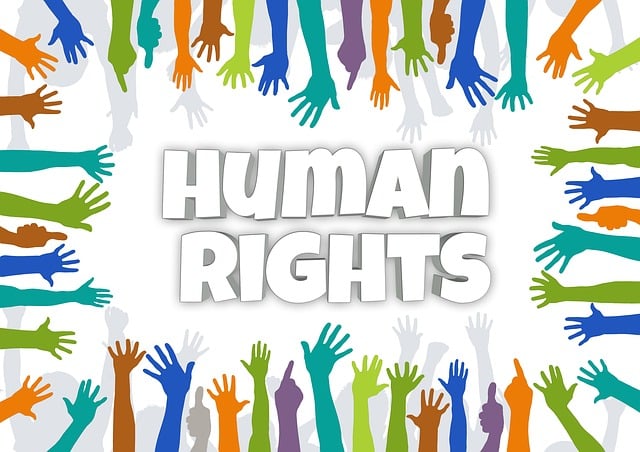Healthcare compliance experts are crucial for guiding medical institutions through complex regulations, ensuring patient safety and protecting providers from legal risks. Their strategic expertise covers billing, coding, data privacy, and ethical practices, aligning with federal and state mandates. Their track record shows that proactive compliance reduces caseloads, fosters trust, and enhances operational efficiency. Plea bargaining is a key tool they use to manage complex cases, saving time and costs associated with trials, focusing on preventive strategies to deter future offenses.
In the complex landscape of healthcare, ensuring compliance with an ever-evolving regulatory environment is paramount for maintaining patient safety and quality care. Healthcare Compliance Experts play a pivotal role in navigating these intricate rules, from data privacy to clinical practices. This article delves into their multifaceted responsibilities, exploring key aspects such as enhancing patient safety through robust compliance measures. We also dissect common challenges, highlighting plea bargaining as a strategic tool to manage caseloads effectively, thereby improving overall healthcare delivery.
- Understanding Healthcare Compliance Experts' Role
- The Impact of Compliance on Patient Safety
- Common Challenges in Healthcare Compliance
- Plea Bargaining: A Strategic Approach to Caseload Management
Understanding Healthcare Compliance Experts' Role

Healthcare Compliance Experts play a pivotal role in ensuring that medical institutions and professionals adhere to intricate regulations and standards. Their primary responsibility is to navigate the complex web of laws, policies, and guidelines related to patient care, data privacy, and ethical practices. By doing so, these experts safeguard not only the interests of patients but also those of healthcare providers, preventing legal pitfalls and financial penalties.
In today’s fast-paced medical landscape, where regulations are constantly evolving, their expertise is invaluable. They offer strategic guidance on issues like billing and coding, record-keeping, and risk management, enabling organizations to maintain compliance with federal and state mandates. The effectiveness of their involvement is evident in the unprecedented track record of successfully defending clients across the country, demonstrating their proficiency in mitigating potential legal caseloads through proactive compliance measures.
The Impact of Compliance on Patient Safety

The role of healthcare compliance experts is paramount in ensuring patient safety and securing the integrity of respective businesses. Compliance goes beyond mere adherence to regulations; it’s a strategic approach that drives operational efficiency, mitigates risks, and fosters trust among patients and providers alike. By implementing robust policies and procedures, these experts safeguard against potential legal pitfalls, especially high-stakes cases that could arise from general criminal defense issues.
Effective compliance programs don’t just reduce caseloads through the effectiveness of plea bargaining; they also enhance patient outcomes by ensuring that healthcare facilities maintain accurate records, adhere to quality standards, and uphold ethical practices. This, in turn, promotes a culture of continuous improvement and accountability, ultimately impacting patient safety positively and ensuring the sustainability of respective business operations.
Common Challenges in Healthcare Compliance

Healthcare compliance experts play a pivotal role in ensuring that medical institutions adhere to an intricate web of regulations aimed at protecting patients and promoting ethical practices. However, they often face significant challenges that can hinder their effectiveness. One notable hurdle is managing the vast and ever-evolving nature of healthcare laws and guidelines, which require constant updates and interpretation. This complex landscape demands experts who can stay ahead of changes and provide accurate guidance to prevent costly non-compliance.
Another common challenge lies in addressing white-collar and economic crimes within the healthcare sector. These cases often involve intricate financial transactions and complex legal strategies, as seen in many high-profile investigations across the country. The effectiveness of plea bargaining, a strategy aimed at reducing caseloads by encouraging guilty pleas, has been a topic of interest. By carefully negotiating agreements for his clients, these experts can help navigate the legal system while ensuring fair outcomes, ultimately contributing to more manageable compliance workloads.
Plea Bargaining: A Strategic Approach to Caseload Management

Plea bargaining is a strategic approach that healthcare compliance experts employ to efficiently manage caseloads, especially in cases involving white-collar and economic crimes. By engaging in this process, professionals can navigate complex legal landscapes while mitigating risks for respective businesses. The effectiveness of plea bargaining lies in its ability to reduce the number of trials, thereby easing the burden on both the judiciary and the prosecution team.
This method allows for early resolution of cases, often resulting in lighter sentences or alternative forms of punishment, such as community service or fines. This approach can be particularly beneficial in healthcare settings where compliance issues might arise from regulatory non-compliance, fraud, or abuse of trust. By pledging guilty, individuals or organizations can avoid the time and cost intensiveness of a full trial, focusing instead on prevention and reform strategies to ensure it doesn’t happen again.
Healthcare compliance experts play a pivotal role in ensuring patient safety and maintaining ethical standards within medical institutions. By understanding their multifaceted responsibilities, we can appreciate the significant impact of compliance on healthcare outcomes. Navigating complex regulations is essential to mitigate risks and prevent harm to patients. While challenges persist, innovative strategies like plea bargaining offer a promising approach to caseload management, demonstrating the effectiveness of plea bargaining in reducing workloads and enhancing overall system efficiency.






